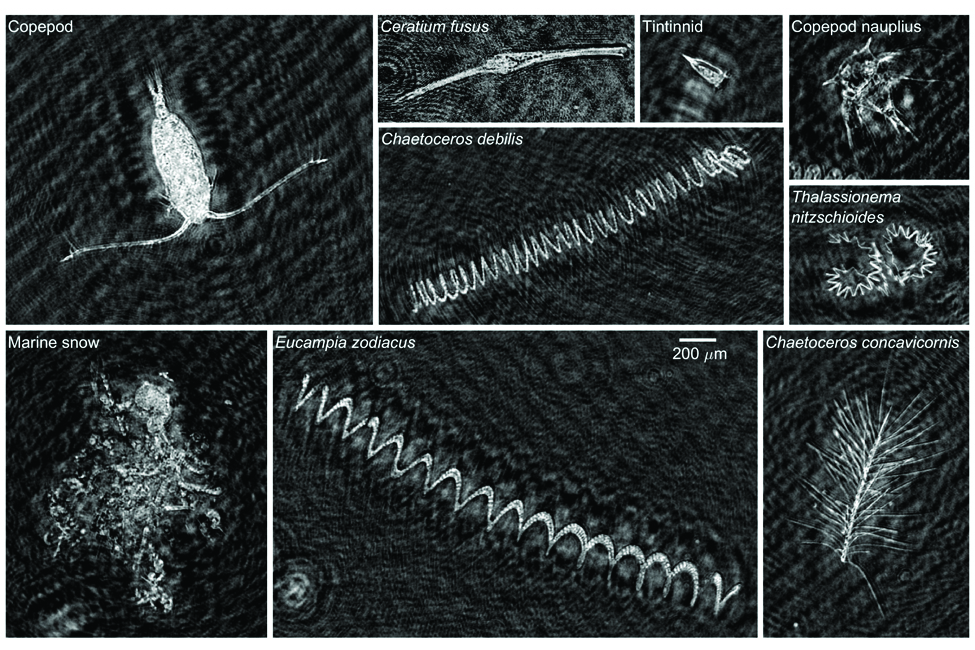NSF Funds Design of Holographic Underwater Microscope
The National Science Foundation recently awarded a multi-year grant to a group of FAU Harbor Branch scientists to pursue work on an underwater holographic imaging system.

Various microscopic zooplankton and phytoplankton imaged in the ocean using the 1st generation holographic microscope designed by Sullivan and his team.
A group of scientists with FAU Harbor Branch are creating technology that will allow them to view – in 3-D – the millions of microscopic creatures and particles that populate bodies of water, including the Indian River Lagoon (IRL), thanks to funding provided by the National Science Foundation (NSF).
FAU Harbor Branch research professor Jim Sullivan, Ph.D., is principal investigator on the project and was recently awarded a multi-year grant worth nearly $900,000 from the NSF to pursue work on an underwater holographic imaging system for long-term studies of marine particles, both in the ocean and in the IRL.
The research involves the development and testing of new technology that will allow them to view what the naked eye is unable to see, and could ultimately help local scientists better understand such topics as harmful algal blooms, spawning and recruitment of fish/coral/shellfish, biophysical interactions, sediment dynamics and a host of other issues relevant to IRL research.
“The successful development of this next generation holographic microscope will provide an unprecedented view of particle dynamics in the IRL and ocean,” said Sullivan. “This will allow us direct 3-D visualization of plankton/particles in their natural, undisturbed state, while simultaneously measuring the flow fields that surround, transport and affect them.”
The myriad of particles that populate the world’s oceans and bodies of water play a major role in a variety of scientific fields, including plankton dynamics, sediment transport, ecological studies of marine food webs and remote sensing/ocean optics. This research builds on Sullivan’s research groups’ past success in developing a prototype holographic microscope that was used to document particle/phytoplankton orientation in the ocean, a phenomenon that is critical to both ocean optics and phytoplankton ecology.
Sullivan is conducting the work, which is being funded by NSF grant award number 1634053, with FAU Harbor Branch colleagues Fraser Dalgleish, Ph.D., Laurent Chérubin, Ph.D., Adi Nayak, Ph.D., Lysel Garavelli, Ph.D. and Malcolm McFarland, Ph.D.
For more information, contact Carin Smith at 772-242-2230 or carinsmith@fau.edu.
-FAU-
Tags: harbor branch | engineering | science | technology